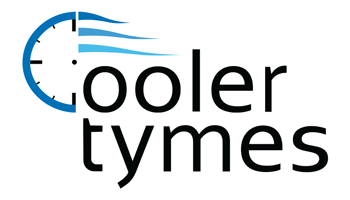
We spend a lot of time inside. In reality, the Environmental Protection Agency (EPA) has approximated being inside comprises 90% of our days. However, the EPA also says your indoor air can be three to five times more polluted than outdoors.
That’s because our houses are firmly sealed to boost energy efficiency. While this is good for your utility bills, it’s not so fantastic if you’re amid the 40% of the population with respiratory allergies.
When outdoor ventilation is restricted, pollutants like dust and volatile organic compounds (VOCs) may get trapped. Consequently, these pollutants might aggravate your allergies.
You can boost your indoor air quality with clean air and usual dusting and vacuuming. But if you’re still having issues with symptoms during the time you’re at your house, an air purifier could be able to help.
While it can’t get rid of pollutants that have gotten trapped in your couch or carpet, it might help purify the air moving across your home.
And air purification has also been scientifically proven to help lessen some allergic symptoms, according to the American College of Allergy, Asthma and Immunology. It could also be appropriate if you or a family member has lung issues, such as emphysema or COPD.
There are two kinds, a portable air purifier or a whole-home air purifier. We’ll examine the distinctions so you can determine what’s right for your house.
Whole-House Air Purifier vs. Portable Air Purifiers
A portable air purifier is for one room. A whole-house air purifier works with your home comfort unit to clean your entire house. Some kinds can purify on their own when your heating and cooling equipment isn’t running.
What’s the Best Air Purifier for Allergies?
Seek an option with a High Efficiency Particulate Air (HEPA) filter. HEPA filters are placed in hospitals and offer the best filtration you can find, as they catch 99.97% of particles in the air.
HEPA filters are even more powerful when combined with an ultraviolet (UV) germicidal light. This dynamic combination can destroy dust, dander, pollen and mold, all of which are standard allergens. For the best in air purification, think over equipment that also has a carbon-based filter to decrease household vapors.
Avoid using an air purifier that makes ozone, which is the primary ingredient in smog. The EPA warns ozone may worsen respiratory problems, even when released at minor concentrations.
The Allergy and Asthma Foundation of America has created a list of questions to ask when getting an air purifier.
- What can this purifier remove from the air? What doesn’t it extract?
- What’s its clean air delivery rate? (A higher number means air will be purified faster.)
- How regularly does the filter or UV bulb need to be changed]? Can I finish that on my own?
- How much do new filters or bulbs cost?
How to Lessen Seasonal Allergy Symptoms
Want to have the {top|most excellent|best] performance from your new air purification equipment? The Mayo Clinic advises taking other steps to limit your exposure to things that can trigger seasonal allergies.
- Stay indoors and keep windows and doors shut when pollen counts are elevated.
- Have someone else trim the lawn or pull weeds, since this work can irritate symptoms. If you have to do these chores yourself, you might want to consider trying a pollen mask. You should also rinse off immediately and change your clothes once you’re completed.
- Avoid stringing up laundry outdoors.
- Use the AC while at home or while you’re on the road. Consider adding a high efficiency air filter in your house’s home comfort unit.
- Equalize your residence’s humidity saturation with a whole-house dehumidifier.
- Hardwood, tile or linoleum are the ideal flooring types for lowering indoor allergens. If your residence has carpet, install a HEPA filter on your vacuum cleaner.
Let Our Pros Take Care of Your Indoor Air Quality Requirements
Want to take the next step with adding a whole-house air purifier? Give our experts a call at 623-208-6444 or contact us online to get an appointment. We’ll help you locate the right unit for your house and budget.
